- From Faith Current: “The Sacred Ordinary: St. Peter’s Church Hall” - May 1, 2023
- A brief (?) hiatus - April 22, 2023
- Something Happened - March 6, 2023
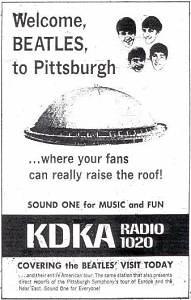 The Beatles one and only visit to Pittsburgh came in 1964, at the height of Beatlemania. The Post-Gazette commemmorates both the concert and the phenomenon here.
The Beatles one and only visit to Pittsburgh came in 1964, at the height of Beatlemania. The Post-Gazette commemmorates both the concert and the phenomenon here.
This is my favorite part. Three fans, holding a cake they hope to present to the group, are outside the arena waiting for the concert to begin:
Speaking “British” was something the three teens who’d never ventured far from Weirton [West Virginia] had done quite often. Just a few weeks earlier, Sharon and Beverly had launched into the accents while attending the premiere of the Beatles’ new movie, “A Hard Day’s Night,” in nearby Steubenville, Ohio. Suddenly, they were surrounded by kids asking questions. It was a hoot!
So why not try it again?
As in Steubenville, the girls were suddenly surrounded.
Fans shouted questions. “Are there cows in England?” was Sharon’s favorite. The crowd grew. Questions came from every corner. The girls parried the queries in their faux accents.
Not everyone was fooled. The girls could feel it — a rumble of disbelief. Finally, someone shouted, “I don’t believe they’re English.”
A hush fell over the crowd. “We’re done for,” Sharon thought. “They’ll burn us at the stake.”Then, from somewhere in the crowd, came the voice of a savior. “Yes, they are! I saw them at “A Hard Day’s Night” in Steubenville, and they’re English.”
For the Beatles in Pittsburgh, “a train and a room and a car and a room and a room and a room”
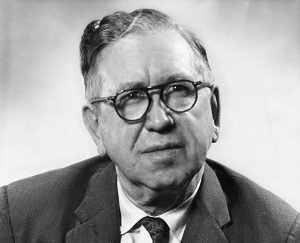
Kaspar Monahan: not amused
It’s all here, the short shows for then-astronomical sums, the berserk fans, the hurled jellybeans (did you know someone once threw a frozen T-bone at Paul? I didn’t), and of course, the condescension shown by the old gray American press. Kaspar Monahan, the drama critic of the Pittsburgh Press wrote, “Paul or John or one of them said something funny, for there was a laugh, but I missed the riposte.”
But you know what? I’ll take that condescension, if you give me the authenticity, too. In our current era, where engineering a moment of masscult buzz is the focus of many adult professions — that’s certainly whatever today’s version of Mr. Monahan is doing — and (it seems) the sole point of much of our technology, it’s always important to remember that Beatlemania was an authentic reaction. Not to promotion, but to art. That’s what makes it a genuinely historical event and, for all its naivéte and silliness and crass commercialism, really inspiring as well.

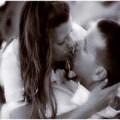
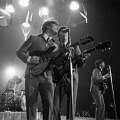
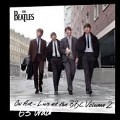
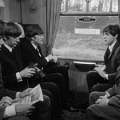
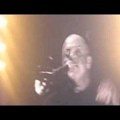
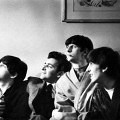
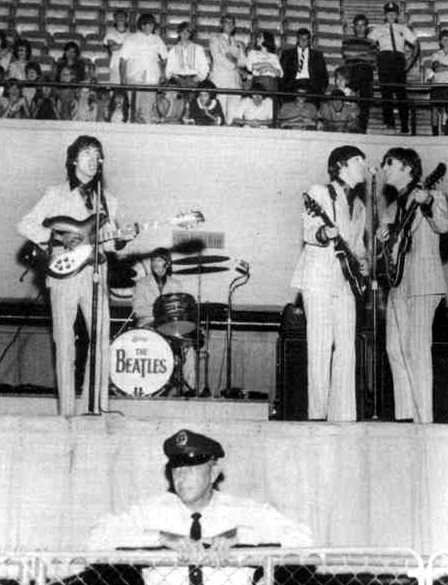
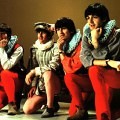
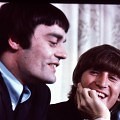
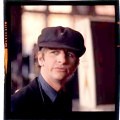
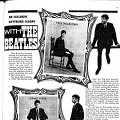
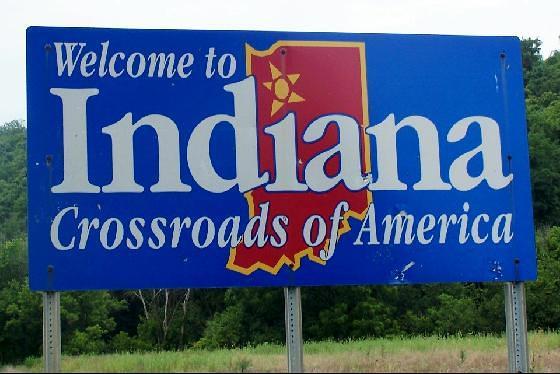
.
Your statement suggests a cause and effect relation between The Beatles’ art and Beatlemania! That’s quite a feat. It makes me curious and the statement confuses. There are not too many people who dare to know or can explain from what aspect from The Beatles (personalities, art, marketing, etc.) germinated their artistic and/or commercial success and Beatlemania.
.
The one person that can explain the causal relation, should keep the explanation to himself and start creating a hugely successful business.
.
Next thought was a question: Can you be more specific?! What does you mean with ‘art’, the music? What aspect of Beatlemania are you referring to?
.
Let’s think Freud for a second… just another way of challenging your statement or find the answer, to what you specifically mean.
.
Freud explains that the constant wrestling between the instinctive powers/energies Eros and Death, between the instinct of life and the instinct of destruction in humans need culture to calm down and avoid war, he wrote this in an essay originated from a challenge by Einstein. I wonder about your perception about what aspect of The Beatles’ art generated the Beatlemania, not so much as in the hysterical screaming and urinating on the seats in but the behaviors as e.g. the girls talking English to their fellow country-(wo)man, in the ‘Burgh story. I am not saying Freud’s theorizing is spot on here nor am I saying it is a suitable framework to explore your statement.
.
I still wonder what did you mean?
.
@Rob, even in that article, Donnie Johnson, a 17-year-old high school junior and AM DJ in rural West Virginia, said he felt that the Beatles’ music — which is what I meant by their “art” — was new and exciting. The mania had as its bedrock a set of songs, created at a particular time, reaching wide distribution and having a galvanic effect. You hear this type of thing constantly in discussions of the Beatlemania period: that the frenzy was built upon a visceral, positive reaction to Beatles music, with the other things involved (their personalities, their look, peer pressure or omnipresence, an interest in music or Britain in general) cited as powerfully positive factors but secondary to the art they were putting out.
The secondary things can be manufactured, as in Andrew Oldham’s creation of the Stones… or every boy-band ever. What you hear with the early Stones is how cool they looked, how rebellious they seemed in relation to The Beatles; and it takes them a full year to write and record a truly iconic song (“Satisfaction”). This is an example of image and positioning driving popularity and the music catching up. The Beatles, on the other hand, went off like a bomb, surprising everybody — they weren’t created by anybody but themselves, and their relationship with their fans was based on music, not branding. (Which is why they changed almost every six months, whereas most groups, The Stones emphatically included, found one successful style and stuck with it).
One need look no further than the first Ed Sullivan Show to know for sure that Beatlemania was not a manufactured phenomenon, but a function of a genuinely new, genuinely exciting, genuinely beloved type of music multiplied by the mass communications ecology of that time, which was “just right” Goldilocks-style, for Beatlemania to happen. Even if John Paul George and Ringo were all misshapen boobs, there still would’ve been a craze for their music. That they were utterly perfect — handsome, funny, intelligent, stylish, exotic — turned the mania up to 11.
The event was, like anything of that scope, multi-factorial and, once underway, fed itself in the reinforcing ways that contemporary media is endlessly trying to induce. But these kinds of things only happen by accident (in a much tinier way, my Barry Trotter and the Shameless Parody, a self-published book that nobody expected to sell 750,000 copies in six months, least of all me). Something new and ably done and psychologically relieving hits at the right time; then the scale of the commerce makes corporations take notice and they begin to do what they do: milk it, merchandise it, make cheap knock-offs, and so forth. Thereby turning something genuine into a cynical money-grab. For every Beatlemania there are a hundred New Kids on the Block, because New Kids are what the media business knows how to do.
What makes Beatlemania truly different is that the Beatles’ genius was so relentless, so substantial, that it was able to outlast and overwhelm the cynical cheapening of their accomplishments. Even Capitol’s slice-and-dice LPs are good; even Dave Dexter Jr can’t make Beatles music bad. The hits just keep coming, each one different from the last.
I don’t think the Eros/Thanatos dichotomy is involved in the conscious aping of Englishness by American Beatlefans, either at the height of the mania or indeed now; I think it’s a simple borrowing of cool from the object of desire, to demonstrate extra closeness and understanding. Which is exactly how it was perceived by the other kids in that story. Devin does a wonderful job tracing the currents of Eros and Thanatos in Magic Circles. I think there was clearly something mythic going on with the Beatles — witness this blog, 50 years later — but I don’t think it was/is conscious in any way. Which is, in the end, a good thing; the ability to move people that strongly is unlikely to be used for wholesome ends.
What do YOU think?
Rob, I’m mystified by the idea of uncoupling Beatlemania from the Beatles’ art, their music. Of course the mania was about more than the music, but that the music was vital—can there be any doubt about that?
As for creating a highly successful business out of understanding cause and effect relationships and how to engineer a variety of mania, that’s exactly what the handlers of any number of pop/rap/tecnho/etc. stars are doing today, as Michael notes. Very, very little of the music involved will have any staying power. I have Sirius satellite radio in my car, and there’s nothing like listening to a little 80s on 8 or 90s on 9 to make that point.
What’s unique about the Beatles, in my opinion, is that the music was primary. Their other qualities were of course important, but it was the music that provided the real liftoff. That’s why not merely their recorded performances endure, but also their songbook: people are still covering and reimagining their work. The durability and versatility of their songbook is simply unequaled in popular music.
KDKA RADIO 1020. Covering the Beatle’s visit today … and their entire American Tour. The same station that also presents direct reports of the Pittsburgh Symphony’s tour of Europe and the Near East. Sound One for everyone!
.
A time before the fragmentation of pop culture into a million shiny pieces. A time when Father could listen to Wagner, and Junior and Sister could hear Twist And Shout on the same station.